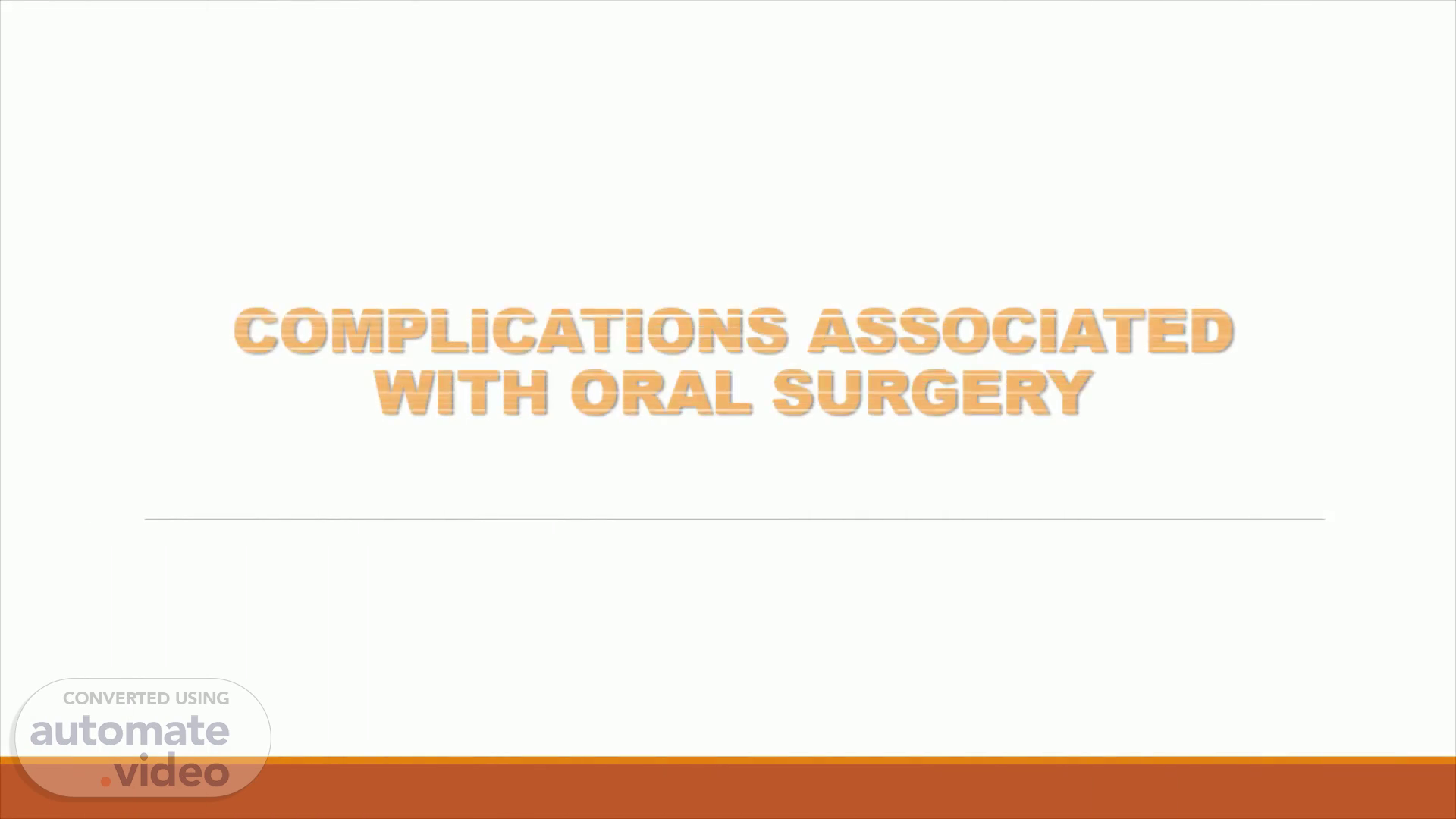
COMPLICATIONS ASSOCIATED WITH ORAL SURGERY
Scene 1 (0s)
COMPLICATIONS ASSOCIATED WITH ORAL SURGERY.
Scene 2 (7s)
IMPACTED TEETH.
Scene 3 (17s)
2 5 3 6 4 7 Classification of impaction of maxillary third molars according to Archer (1975). 1 Mesioangular, 2 distoangular, 3 vertical, 4 horizontal, 5 buccoangular, 6 linguoangular, 7 inverted..
Scene 4 (31s)
CLASSIFICATION OF IMPACTED MANDIBULAR THIRD MOLARS.
Scene 5 (41s)
CLASSIFICATION OF IMPACTED MAXILLARY CANINES. Type Type V Type.
Scene 6 (49s)
SURGICAL PROCEDURE FOR THE REMOVAL OF IMPACTED TOOTH.
Scene 7 (1m 3s)
CLEFT LIP AND CLEFT PALATE. Cleft palate Cleft lip and cleft palate O MAYO FOUNDATION FOR MEDICAL EDUCATION ANO RESEARCH. ALL RIGHTS RESERVED..
Scene 8 (1m 15s)
(6. TREATMENT.
Scene 9 (1m 24s)
CANCERS OF THE HEAD AND NECK. Nasal cavity Tumor Hard palate Tongue Epiglottis Esophagus Trachea Types of Head and Neck Cancers Nasopharynx Oropharynx Hypopharynx.
Scene 10 (1m 41s)
COMMON TREATMENTS FOR HEAD AND NECK CANCERS SURGERY RADIATION Over the years, surgery for head Doctors aim high-energy rays directly at tumors to kill cancer and neck cancers has come a long way: They are now done robotically cells. Sometimes radiation is or via laser microsurgery, usually performed before surgery to through the mouth. help shrink the malignancy. TARGETED THERAPY CHEMOTHERAPY This is typically given through IV, These personalized medications and it fights cancer cells through attack specific genes, proteins, and tissue that contribute to your bloodstream. Chemo can shrink a tumor and/or kill any rogue your cancer. They tend to have cancer cells leftover from surgery. fewer side effects than chemo. @healthcentral.
Scene 11 (2m 9s)
DENTAL IMPLANTS.
Scene 12 (2m 16s)
Structure of The Dental Implant System Crown Abutment Implant Body.
Scene 13 (2m 26s)
SURGICAL PROCEDURES. An area with a single missing tooth.
Scene 14 (2m 40s)
Once the bone is exposed, a series of drills create and gradually enlarge a site (called an osteotomy) for the implant to be placed..
Scene 15 (2m 56s)
A healing abutment is attached to the implant fixture, and the flap of gingiva is sutured around the healing abutment..
Scene 16 (3m 15s)
When mucosa is missing, a free gingival graft of soft tissue can be transplanted to the area..
Scene 17 (3m 32s)
When the metal of an implant becomes visible a connective tissue graft can be used to improve the mucosal height..
Scene 18 (3m 55s)
THANK YOU.